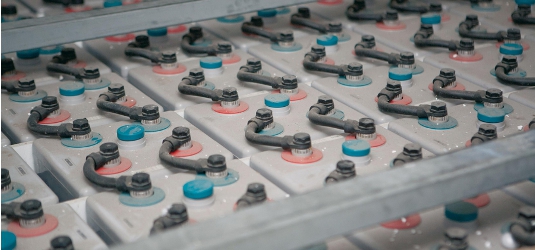EUROBAT, the Association of European Automotive and Industrial Battery Manufacturers, has today issued a call to the European Union (EU) for the development of a 2030 Battery Strategy for Europe that it believes will help usher in a decarbonized future for the continent.
By placing battery storage systems at the heart of Europe’s energy network, the EU can more quickly, efficiently and affordable bring about its targeted shift towards a society no longer reliant on fossil fuels for energy, heating or transport, EUROBAT says, with storage acting as an enabler for more renewable energy, better energy efficiency and the hybridization and electrification of vehicles.
Another benefit of such a strategy, EUROBAT believes, would be greater coherence between several EU energy policies, lending a common goal to what is often a disparate patchwork of approach among member states.
The introduction of EU-wide support for storage would also serve as a boost for manufacturing, offering confidence to battery developers operating in Europe and boosting the job market of this high-tech industry. Currently, more than 30,000 people in the EU work in the sector.
Popular content
“EUROBAT asks European policy makers to cooperate with all stakeholders, including manufacturers, suppliers, value chain partners, users and civil society to develop the ‘2030 Battery Strategy for Europe’”, the call reads. “Such overall strategic EU policy framework would provide business certainty for European battery manufacturers … and deliver growth and new opportunities for innovation in Europe.”
Currently, each EU Member State adopts its own approach to storage. In the U.K., the government is expected to roll-out a storage-specific policy in the Spring that observers believe could liberalize and boost the market, whereas in Germany a subsidy scheme extended last year offers a rebate for customers that install a solar+storage system.
Innovations driving storage uptake in Europe include aggregation, whereby multiple storage customers are connected via the cloud, supplying and drawing stored energy as and when it is required. Companies such as Moixa and sonnen have developed community platforms offering such a service, and a recent report by DNV GL found that this ‘multi-stakeholder’ approach could prove pivotal in enabling more of Europe’s population to reap the benefits of stored electricity.
This content is protected by copyright and may not be reused. If you want to cooperate with us and would like to reuse some of our content, please contact: editors@pv-magazine.com.


By submitting this form you agree to pv magazine using your data for the purposes of publishing your comment.
Your personal data will only be disclosed or otherwise transmitted to third parties for the purposes of spam filtering or if this is necessary for technical maintenance of the website. Any other transfer to third parties will not take place unless this is justified on the basis of applicable data protection regulations or if pv magazine is legally obliged to do so.
You may revoke this consent at any time with effect for the future, in which case your personal data will be deleted immediately. Otherwise, your data will be deleted if pv magazine has processed your request or the purpose of data storage is fulfilled.
Further information on data privacy can be found in our Data Protection Policy.